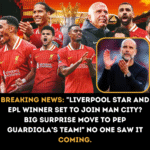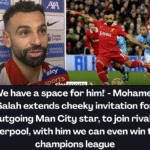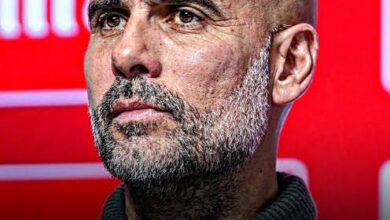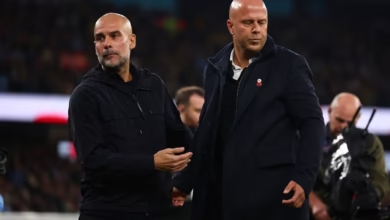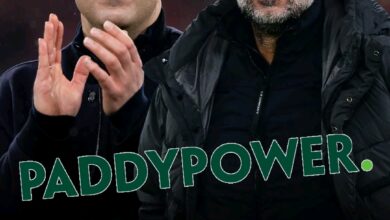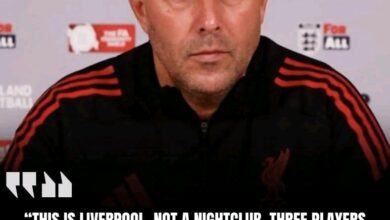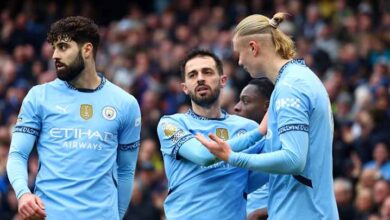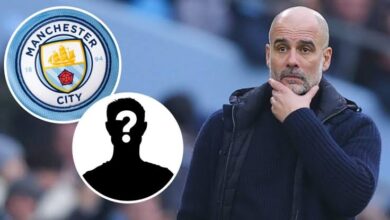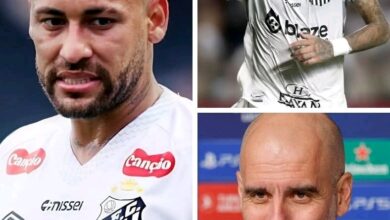Jurgen Klopp favourite in line to team up with Pep Guardiola at Man City in ‘unthinkable’ move
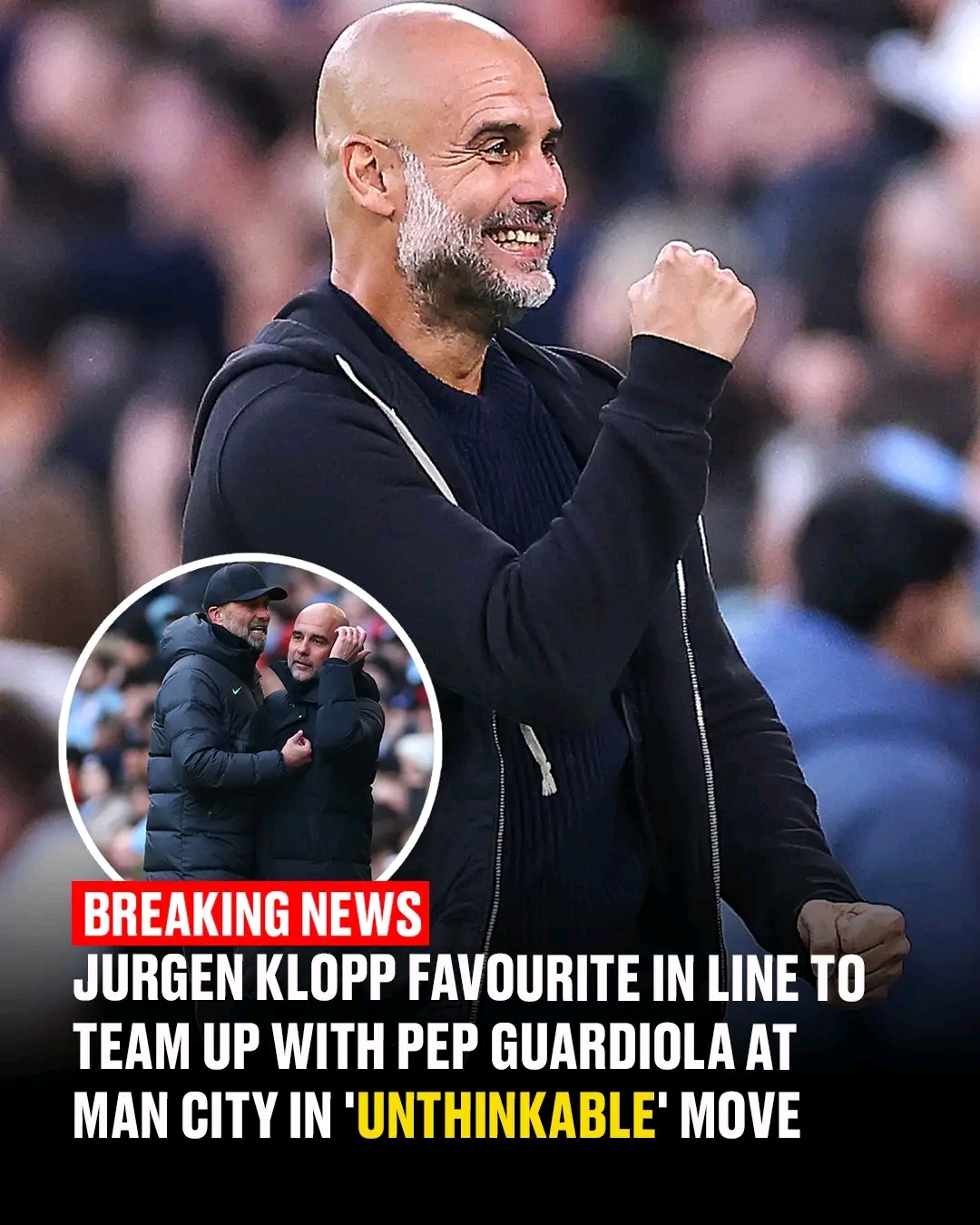
The footballing world rarely witnesses scenarios that challenge the very foundations of rivalry and loyalty. Yet, as the summer of 2025 unfolds, Manchester City finds itself at the center of what could be described as one of the most shocking potential appointments in recent Premier League history. The prospect of Pep Lijnders, Jurgen Klopp’s trusted lieutenant and former right-hand man at Liverpool, joining forces with Pep Guardiola at the Etihad Stadium represents a move so unexpected that it has sent shockwaves through the footballing community.
Manchester City’s 2024-25 season will be remembered as a campaign of unfulfilled potential and missed opportunities. For a club that has dominated English football over the past decade under Guardiola’s stewardship, the failure to mount a serious challenge for the Premier League title marked a significant departure from their established standards of excellence. The season’s disappointments were compounded by their devastating loss to Crystal Palace in the FA Cup final, a result that not only denied them silverware but also highlighted the tactical and motivational challenges that had plagued their campaign throughout the year.
This underwhelming performance has prompted a period of intense introspection at the Etihad Stadium. The club’s hierarchy, known for their meticulous planning and strategic vision, has recognized that maintaining their position at the pinnacle of English and European football requires more than just minor adjustments. Instead, they have sanctioned what amounts to a comprehensive overhaul of the coaching infrastructure that has supported Guardiola’s revolutionary approach to the game.
The decision to initiate such sweeping changes reflects Manchester City’s unwavering commitment to excellence and their recognition that even the most successful systems require periodic renewal. Guardiola himself, despite his unparalleled success at the club, has embraced this philosophy of continuous evolution, understanding that the modern game’s demands require constant adaptation and fresh perspectives.
The magnitude of the changes currently underway at Manchester City becomes apparent when examining the scale of departures from Guardiola’s trusted inner circle. Juanma Lillo, whose tactical acumen and deep understanding of Guardiola’s philosophy made him an indispensable figure in the coaching setup, will depart when his contract expires at the end of the current term. Lillo’s influence extended far beyond the training ground, serving as both a strategic advisor and a crucial link between Guardiola’s vision and its practical implementation on the pitch.
Similarly, Inigo Dominguez, another key figure in the coaching hierarchy, will also bid farewell to the Etihad Stadium. Dominguez’s departure represents the loss of institutional knowledge and continuity that has been fundamental to City’s success over recent years. His tactical insights and ability to communicate complex strategic concepts to players from diverse backgrounds made him an invaluable asset to Guardiola’s coaching methodology.
Perhaps most significantly, Carlos Vicens has chosen to embark on his own managerial journey, accepting the challenge of leading SC Braga in Portugal. Vicens’ decision to pursue independent management opportunities, while entirely understandable from a career progression perspective, deprives City of another experienced voice in their coaching setup. His departure to Braga represents not just a personal milestone but also a testament to the quality of coaches that Guardiola has nurtured during his tenure at Manchester City.
These simultaneous departures create both a significant challenge and an unprecedented opportunity for Manchester City. While the loss of such experienced and trusted advisors undoubtedly represents a substantial blow to the existing coaching infrastructure, it also provides Guardiola with the chance to introduce fresh perspectives and innovative approaches that could rejuvenate his tactical philosophy
In the context of these sweeping changes, the emergence of Pep Lijnders as a leading candidate for a coaching position at Manchester City represents one of the most intriguing and controversial developments in recent Premier League history. Lijnders’ potential appointment would mark a seismic shift in the traditional boundaries of football rivalry, given his intimate association with Liverpool and Jurgen Klopp during some of the most intense and competitive periods in recent English football history.
Lijnders’ credentials as a coach are beyond dispute. During his time at Liverpool, he served as far more than a mere assistant to Klopp; he was a tactical innovator, a strategic thinker, and a crucial component in the development of the high-intensity, gegenpressing style that became synonymous with Liverpool’s most successful era in recent decades. His influence on Liverpool’s playing style was so pronounced that many tactical analysts considered him to be co-architect of the system that delivered the Champions League in 2019 and the Premier League title in 2020.
The Dutch coach’s tactical philosophy, characterized by its emphasis on aggressive pressing, rapid transitions, and collective intensity, might seem at odds with Guardiola’s more possession-based approach. However, modern football’s evolution has demonstrated that the most successful teams are those capable of adapting their tactical approach to different phases of play and varying opposition strategies. Lijnders’ expertise in high-intensity pressing could provide Guardiola with the tactical flexibility needed to address some of the vulnerabilities that were exposed during City’s disappointing 2024-25 campaign.
Following his departure from Liverpool alongside Klopp in 2024, Lijnders accepted the challenge of managing Red Bull Salzburg, a position that offered him the opportunity to implement his tactical philosophy as a head coach rather than an assistant. However, his tenure in Austria proved to be challenging, and he was relieved of his duties in December 2024. This experience, while disappointing in its outcome, provided Lijnders with valuable insights into the complexities of top-level management and the challenges of translating assistant coaching skills into primary leadership responsibilities.
Since his departure from Salzburg, Lijnders has remained unattached, using this period to reflect on his experiences and consider his next career move. The possibility of joining Manchester City represents not just a return to elite-level coaching but also an opportunity to work under one of the game’s most respected tactical minds while contributing his own expertise to a system that has achieved unprecedented success in English football.
Pep Guardiola’s willingness to consider such a controversial appointment reflects his pragmatic approach to squad and staff management. Throughout his illustrious career, Guardiola has demonstrated an ability to look beyond traditional boundaries and preconceptions when identifying individuals who can contribute to his tactical vision. His track record of developing coaches who have gone on to achieve success in their own right – including Mikel Arteta at Arsenal and Enzo Maresca, who has also worked under his guidance – demonstrates his commitment to fostering tactical innovation and strategic thinking.
The potential appointment of Lijnders would represent a fascinating convergence of two distinct tactical philosophies. Guardiola’s possession-based approach, characterized by its emphasis on controlling games through superior technical ability and positional play, could be enhanced by Lijnders’ expertise in transition moments and defensive pressing. The combination of these complementary skill sets could potentially create a more complete tactical system that addresses some of the limitations that have occasionally constrained City’s effectiveness against certain types of opposition.
Moreover, Guardiola’s own evolution as a coach has been marked by his willingness to adapt and incorporate new ideas into his tactical framework. From his early days at Barcelona, through his transformative period at Bayern Munich, to his current tenure at Manchester City, Guardiola has consistently demonstrated an openness to tactical innovation and strategic adaptation. The potential addition of Lijnders to his coaching staff would represent a continuation of this philosophy of continuous learning and development.
While Lijnders represents the most high-profile and controversial potential appointment, Manchester City are also considering alternative candidates for their coaching positions. Kolo Toure, the former Arsenal, City, and Liverpool defender who currently serves as assistant manager of City’s youth team, has emerged as a strong internal candidate for promotion to the senior coaching staff.
Toure’s appointment would represent a different type of strategic thinking, emphasizing continuity and internal development rather than external recruitment. His previous experience working under Brendan Rodgers at both Celtic and Leicester City, combined with his brief but instructive stint as manager of Wigan Athletic, has provided him with valuable insights into different tactical approaches and management philosophies.
The former Ivory Coast international’s intimate knowledge of Manchester City’s organizational culture and youth development systems could prove invaluable in ensuring continuity during a period of significant change. His relationships with current players, many of whom he has worked with in various capacities throughout their development, could facilitate the integration of new tactical concepts and strategic approaches.
Additionally, according to reports from reliable sources, Ben Wilkinson and his assistant Craig Mudd are being considered for roles in supporting Guardiola’s preparations for the Club World Cup. Their success in leading City’s Under-21 side to the Premier League 2 title demonstrates their tactical acumen and their ability to implement Guardiola’s philosophical principles at different levels of competition.
The potential reshuffling of Manchester City’s coaching staff extends far beyond the immediate tactical implications for the first team. These changes represent a broader strategic vision for the club’s future, one that recognizes the evolving demands of modern football and the need for continuous adaptation in an increasingly competitive environment.
The modern game’s intensity and tactical sophistication require coaching staffs that can provide specialized expertise across multiple areas of performance. The addition of coaches with different backgrounds and tactical philosophies could provide Manchester City with the flexibility needed to address the varied challenges posed by different opposition styles and competition formats.
Furthermore, these coaching changes occur against the backdrop of broader transformations in football tactics and strategy. The increasing emphasis on data analysis, sports science, and psychological preparation requires coaching teams that can integrate these diverse elements into coherent and effective training methodologies. The potential addition of coaches with different perspectives and expertise areas could enhance City’s ability to remain at the forefront of these tactical and technological development
The potential appointment of Lijnders would not be entirely without precedent in football history, though it would certainly rank among the most significant examples of coaches crossing traditional rivalry lines. Football has witnessed several instances where individuals have moved between rival clubs, though such transitions are typically met with varying degrees of controversy and scrutiny from supporters and media alike.
The intensity of the rivalry between Manchester City and Liverpool during the Guardiola-Klopp era has been characterized by mutual respect and tactical innovation, with both coaches pushing each other to new levels of excellence. Their competitive battles have produced some of the most memorable matches in recent Premier League history, with tactical nuances and strategic adjustments often determining the outcomes of crucial encounters.
In this context, the potential collaboration between Guardiola and Lijnders represents a fascinating convergence of tactical philosophies that were previously seen as opposing forces in English football. The prospect of these two innovative minds working together, rather than against each other, could potentially produce tactical innovations that benefit not just Manchester City but the broader development of football strategy.
As Manchester City navigates this period of significant change, the decisions made regarding their coaching staff will have profound implications for the club’s future trajectory. The potential appointment of coaches like Lijnders, combined with the promotion of internal candidates like Toure, suggests a strategic approach that balances external expertise with institutional continuity.
The success or failure of these appointments will ultimately be measured by Manchester City’s ability to return to their previous levels of dominance while adapting to the evolving challenges of modern football. The Premier League’s competitive landscape continues to intensify, with rival clubs making their own strategic investments and tactical innovations. In this environment, Manchester City’s ability to maintain their competitive edge will depend heavily on the effectiveness of their coaching infrastructure and its capacity to support Guardiola’s tactical vision.
The upcoming seasons will serve as a crucial test of these strategic decisions. The integration of new coaching personnel, the adaptation of tactical approaches, and the continued development of playing personnel will all contribute to determining whether Manchester City can reclaim their position at the summit of English and European football.
As the summer transfer window approaches and these coaching appointments are finalized, the footballing world will watch with keen interest to see how these changes impact one of the Premier League’s most successful and innovative clubs. The potential collaboration between Guardiola and Lijnders, should it materialize, would represent not just a significant development for Manchester City but a fascinating case study in tactical collaboration and strategic innovation in modern football.
The story of Manchester City’s coaching revolution is still being written, but its implications for the future of English football are already becoming apparent. In a sport where marginal gains often determine success or failure, the strategic decisions made during this crucial period could well define the next chapter in Manchester City’s remarkable journey.
